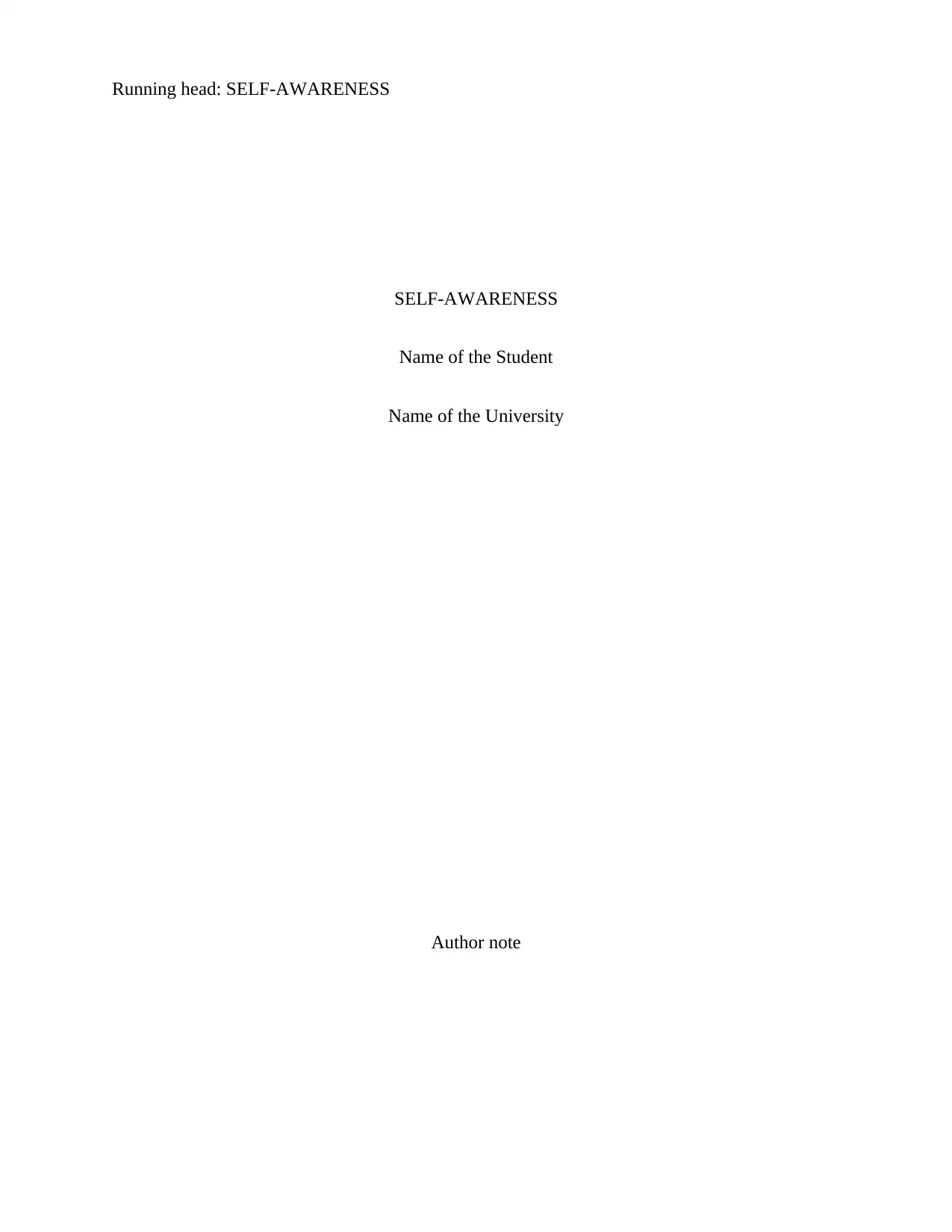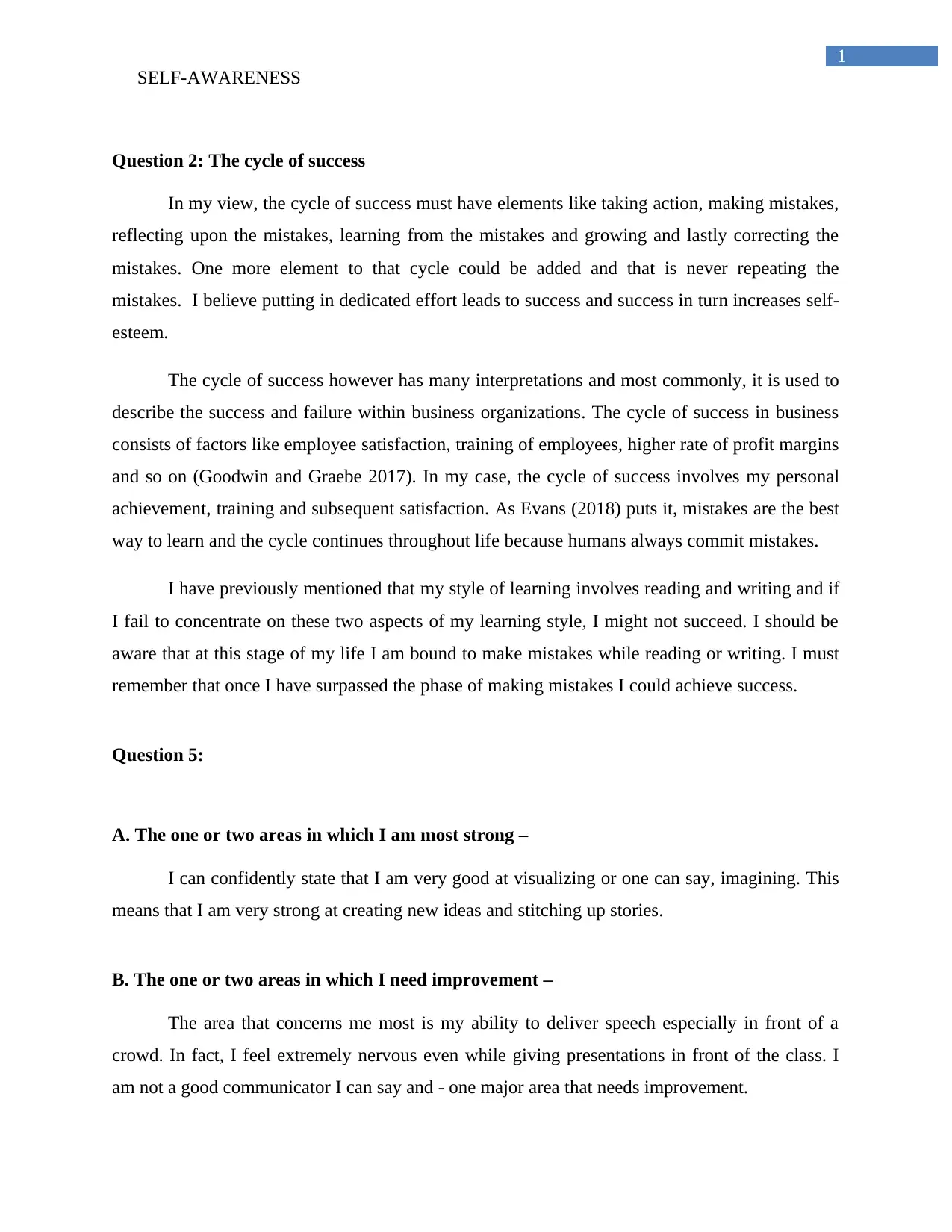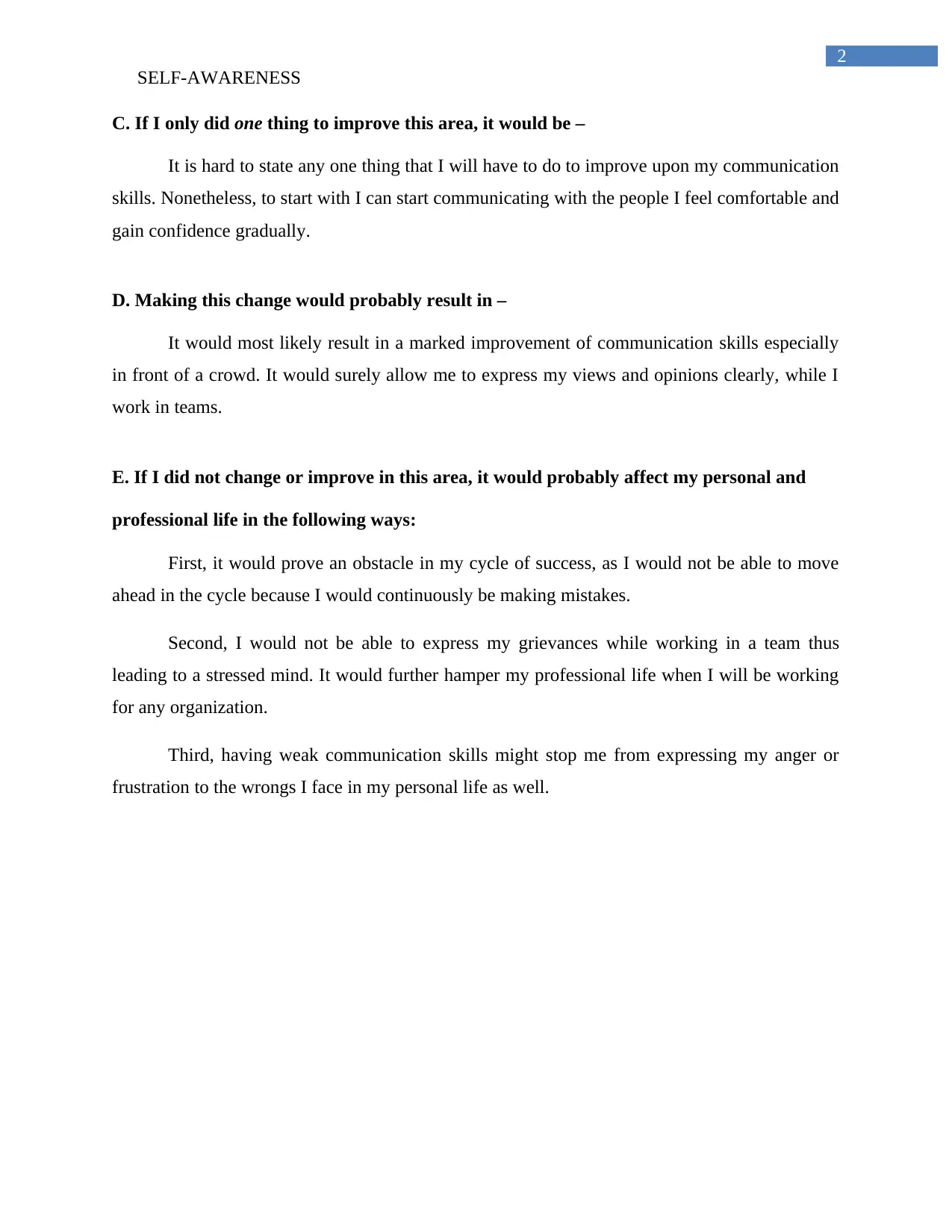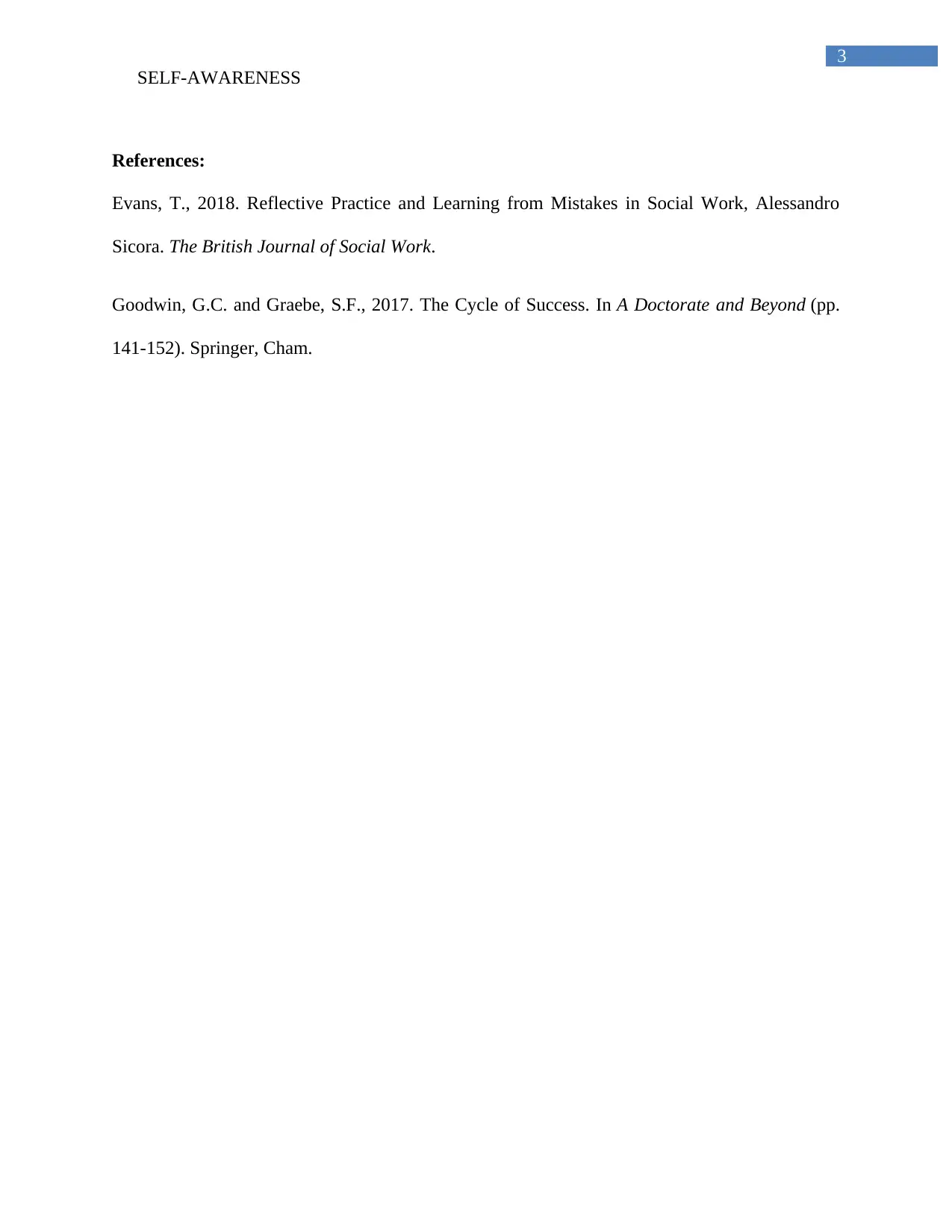Analyzing Self-Awareness, Improvement Areas, and Cycle of Success
VerifiedAdded on 2023/06/13
|4
|677
|483
Essay
AI Summary
This essay delves into the concept of self-awareness and its relationship with the cycle of success, emphasizing the importance of taking action, learning from mistakes, and continuous growth. It highlights the author's strengths in visualization and identifies areas needing improvement, particularly communication skills. The essay discusses how enhancing communication could positively impact both personal and professional life, while neglecting it may hinder progress and create obstacles. References to relevant literature support the discussion on learning from mistakes and the cycle of success within organizations, underscoring the iterative nature of personal and professional development.
1 out of 4











![[object Object]](/_next/static/media/star-bottom.7253800d.svg)